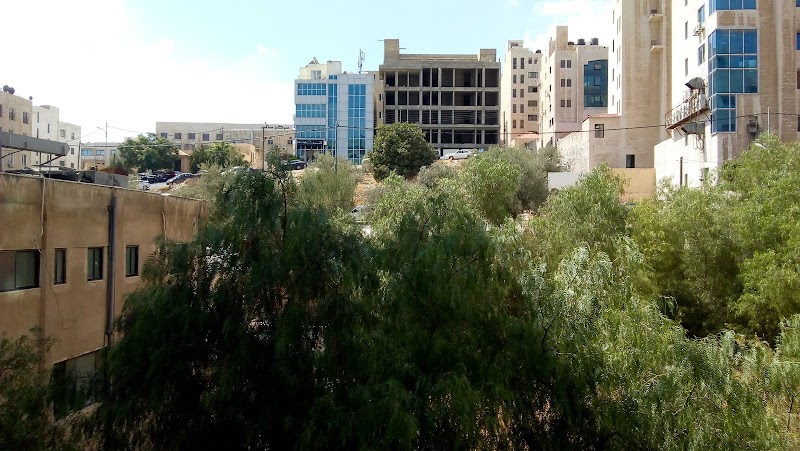Abdullah I bin Al-Hussein was the first King of Jordan, reigning from 1946 until his assassination in 1951. Born on February 8, 1882, he belonged to the Hashemite family, an influential Arab dynasty with roots in Mecca and Medina.
Ethnicity: Abdullah I was an Arab of Hashemite lineage, tracing his ancestry back to the Prophet Muhammad. The Hashemites have held significant religious and political roles in the Arab world for centuries.
Background and History: Abdullah I spent his early life in Mecca, where he received a traditional Islamic education. In 1909, he became Amir of Mecca, but his tenure was brief due to the outbreak of World War I. During the war, he sided with the British against the Ottoman Empire and played a crucial role in the Arab Revolt of 1916.
Achievements and Legacy: Abdullah I’s most notable achievement was the establishment of the Hashemite Kingdom of Jordan in 1946. Through diplomatic negotiations and political maneuvering, he secured international recognition for Jordan’s independence and laid the foundation for the country’s development.
Abdullah I was also a strong advocate for Arab unity and played a key role in the formation of the Arab League in 1945. He believed in promoting cooperation among Arab countries and sought to resolve regional conflicts peacefully.
Popular Recognition: Abdullah I is remembered as a respected and influential leader both in Jordan and the broader Arab world. He is known for his dedication to the independence and stability of Jordan, his efforts to promote Arab unity, and his commitment to peaceful coexistence with neighboring countries.
- Established the Hashemite Kingdom of Jordan in 1946, securing international recognition for Jordan’s independence.
- Played a key role in the formation of the Arab League in 1945, advocating for Arab unity and regional cooperation.
- Promoted peaceful coexistence with neighboring countries, contributing to regional stability.
- Known for his dedication to the development and modernization of Jordan, including infrastructure projects and education reforms.
- Remembered as a respected and influential leader in Jordan and the Arab world, leaving a lasting legacy of independence, unity, and peaceful coexistence.

Emblem of Jordan
To enrich your insights into presidential figures worldwide, also explore some prominent first presidents from other countries, such as Japan, Jamaica and Italy. Delving into the leadership journeys of these figures can offer valuable perspectives on their historical significance and pivotal roles in shaping global politics.
![Jordan Bardella (French pronunciation: [ʒɔʁdan baʁdɛla]; born 13 September 1995) is a French politician who has been the president of the National Rally (RN) since 2022, previously serving as acting president from September 2021 to November 2022 and as vice-president from 2019 to 2022. Bardella has also served as a Member of the European Parliament (MEP) since 2019, when he was the lead candidate for the RN in the European Parliament election, and has been a regional councillor of Île-de-France since 2015.
Before becoming acting president of the RN, Bardella served as vice-president from 2019 to 2021 and the party's spokesman from 2017 to 2019. From 2018 to 2021, he was also president of its youth wing, the Front National de la Jeunesse (FNJ), later renamed Génération Nation (GN).](https://upload.wikimedia.org/wikipedia/commons/5/5f/Jordan_Bardella_-_Strasbourg_European_Parliament_September_2022_%28cropped%29.jpg)
The official residence and symbol of the Jordan President
10 Iconic Presidents Who Shaped Jordan’s History

In the history of Jordan, there have been several influential and popular presidents who have played a significant role in shaping the country’s political landscape. These leaders have implemented reforms, guided the nation through challenging times, and worked towards national development. Here are 10 of the most popular presidents from Jordan:
- King Hussein bin Talal (1952-1999): King Hussein, the longest-reigning monarch in Jordan’s history, is highly regarded for his leadership during periods of regional turmoil. He prioritized peace and stability, forging diplomatic relations with various countries.
- King Abdullah II (1999-present): The current monarch, King Abdullah II, is recognized for his efforts in modernizing the country, promoting economic development, and enhancing Jordan’s role in regional peace initiatives.
- Abdul Salam Arif (1963-1966): Abdul Salam Arif served as Jordan’s President during the early 1960s. He played a crucial role in strengthening bilateral relations between Jordan and other Arab nations.
- Zaid ibn Shaker (1970): Zaid ibn Shaker served as the Prime Minister of Jordan during a turbulent period marked by political unrest. Despite being a transitional leader, he made notable contributions to stabilizing the country.
- Ali Abu al-Ragheb (2000-2003): As the Prime Minister of Jordan, Ali Abu al-Ragheb implemented economic reforms and focused on enhancing the business climate in the country.
- Marouf al-Bakhit (2005-2007, 2011-2012): Marouf al-Bakhit served as the Prime Minister of Jordan in two separate periods. He focused on political and economic reforms, contributing to the country’s stability and development.
- Tahir Masri (2005): Tahir Masri briefly held the position of Prime Minister, where he aimed to address economic challenges and promote social welfare programs.
- Majali (1979-1984): Zaid al-Rifai Majali, as the Prime Minister, played a vital role in stabilizing Jordan during regional crises. He embraced economic reforms and enhanced relations with neighboring countries.
- Abdelsalam al-Majali (1989-1991): Abdelsalam al-Majali served as the Prime Minister during a time of increased political involvement. He worked towards strengthening democratic institutions and promoting political pluralism.
- Awn al-Khasawneh (2011): Awn al-Khasawneh served as the Prime Minister for a short period. He focused on enhancing the rule of law, combating corruption, and fostering political dialogue.
These presidents and prime ministers have left a lasting impact on Jordan’s development, either through political, economic, or social reforms. As leaders, they have strived to guide Jordan towards stability, progress, and prosperity.

